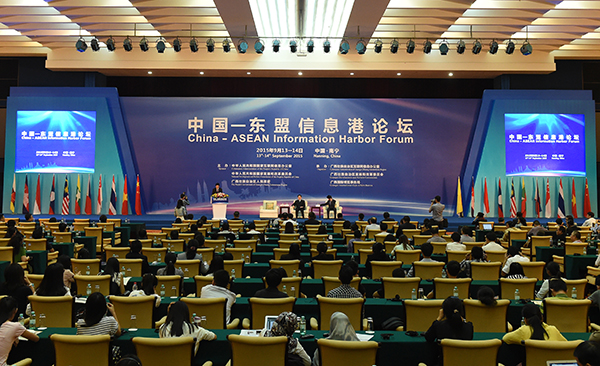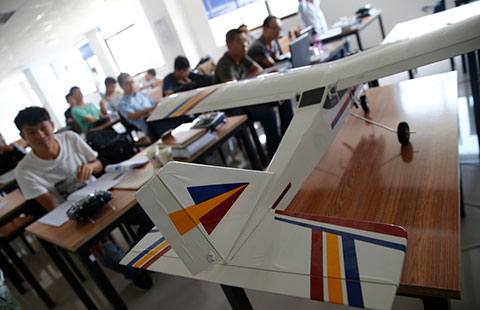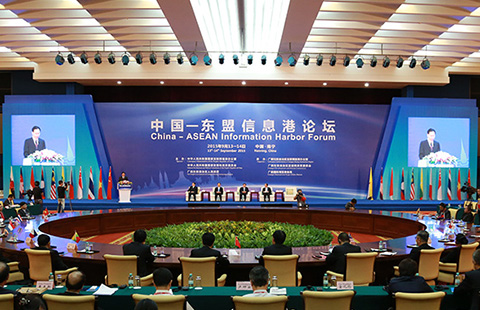China proposes deeper cyberspace cooperation with ASEAN
(chinadaily.com.cn) Updated: 2015-09-14 19:36
 |
|
The closing ceremony of the China-ASEAN Information Harbor Forum in Nanning, Guangxi Zhuang autonomous region, Sept 14, 2015. [Photo/provided to chinadaily.com.cn] |
China is proposing deeper, win-win cooperation with ASEAN countries by establishing an Internet economic common market, said Zhuang Rongwen, vice minister of the Cyberspace Administration of China.
The proposal was made at the China-ASEAN Information Harbor Forum that ended in Nanning, Guangxi Zhuang autonomous region, on Monday.
The forum was jointly organized by the Cyberspace Administration of China and Guangxi Zhuang autonomous region to promote the Silk Road project and an information highway to connect China and the ASEAN members.
Indonesia, Malaysia, Singapore, Myanmar, the Philippines, Vietnam, Laos, Thailand, Brunei and Cambodia comprise ASEAN.
China also signed an agreement on cyberspace cooperation and development with Laos. It also said it will sign a similar agreement for cooperation with Indonesia later.
During the forum, Cambodia underlined interaction and unrestrained flow of information among countries. Singapore said efforts from both sides are needed to establish China-ASEAN information networks.
More than 280 government officials, business luminaries and scholars attended the forum and the launch of the China-ASEAN information harbor base.
The harbor project encompasses infrastructure construction, technology cooperation, trade services, information sharing and cultural exchange. It envisages cooperation among port cities in the areas of information technology, finance, cross-border e-commerce and smart cities.
Zhuang proposed eight initiatives:
I. Sharing achievements in cyberspace development; building a China-ASEAN community; construction of the Maritime Silk Road to improve the economic prospects of people across the region.
Ⅱ. Building the China-ASEAN information harbor; promotion of regional information technology infrastructure; improvement in communication and connectivity and establishment of a common market for the Internet-based economy.
Ⅲ. According respect to Internet-related sovereignty of other countries, and establishment of a multilateral, democratic, transparent Internet regulatory system.
Ⅳ. Enforcement of cyber security, prevention of cyber attacks and protection for individual’s legal rights.
Ⅴ. Concerted fight against cyber terrorism and efforts to keep the Internet from becoming a breeding ground for terrorists.
Ⅵ. Fight against cyber crime, deterrence against cyber criminal activities such as information theft and violation of privacy.
Ⅶ. Enhanced efforts towards protection of minors and to build a safe and healthy internet environment.
Ⅷ. Deeper cooperation in trade, culture and technology through better networking and information technology for overall development.
- Stocks edge down as industrial growth disappoints market
- Drone training schools turn hot in China
- New iPhone pre-orders booming in China
- China to edge itself into high-income economy by 2020
- SOHO China chairman upbeat on company's future
- Volkswagen says it 'accepts and respects' watchdog's findings
- Year-on-year vehicle sales continue to slip
- Volvo works on core responsibilities of design in Shanghai

















